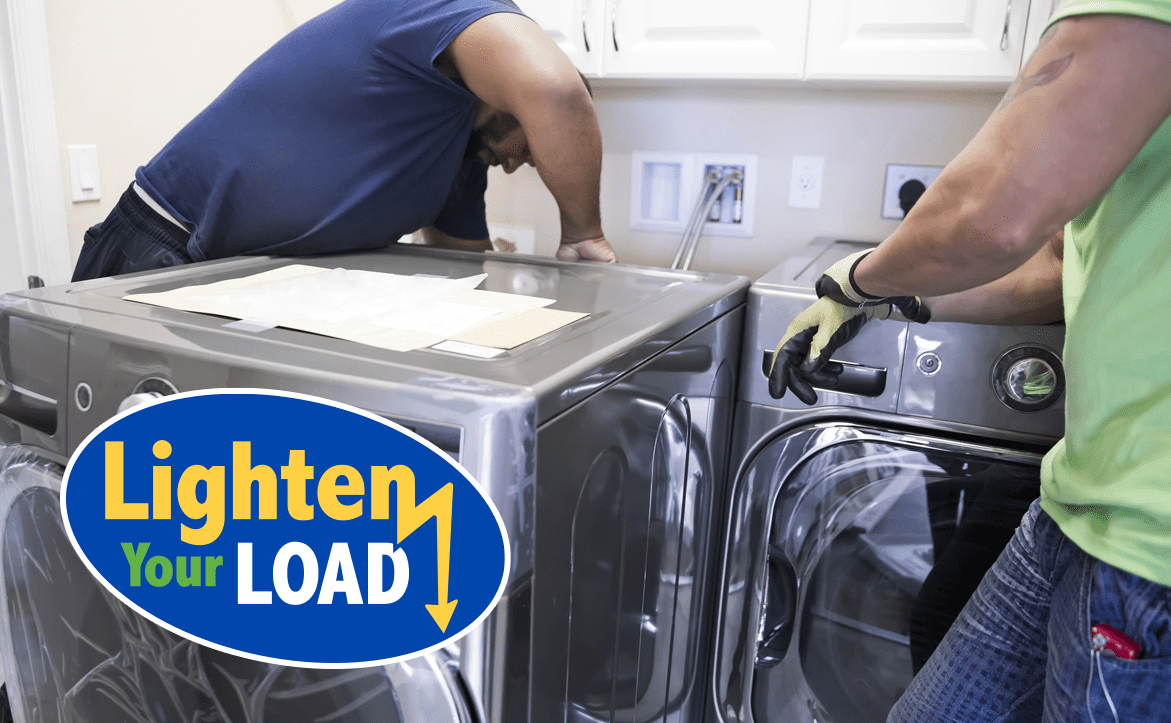
When buying a new appliance, cost and energy efficiency are increasingly important. We all want to save money and be more energy efficient. But it can be tough to make informed decisions about which items to buy. Washing machines, dishwashers, water heaters: these all greatly affect the environment and our wallets.
Let’s go over seven key things to keep in mind when shopping for a new appliance.
1. Look for appliances with high Energy Star ratings.
The Energy Star label is key when shopping for just about any appliance. It indicates that the appliance meets or exceeds energy efficiency guidelines set by the Environmental Protection Agency (EPA). These appliances typically consume less energy, resulting in lower utility bills over time.
Also, if you’re considering appliances that use water, keep an eye out for the WaterSense label. Products with this label are water-efficient and meet the EPA’s criteria for efficiency and performance.
2. Choose the right size and type of appliance for your needs.
More space in your freezer, more room in your dishwasher, we can feel like buying bigger items matters. But larger appliances use more energy. Go for a size that matches your home’s requirements without unnecessary excess capacity. Some things you might consider include the number of people in your household and how heavily you use your appliances.
Also, different types of appliances have varying energy efficiency levels. For example, front-loading washing machines tend to be more energy-efficient than top-loading ones. Similarly, induction cooktops are more efficient than traditional electric or gas ones. A little extra homework on the most energy-efficient types of appliances can go a long way.
3. Consider the energy-saving features and settings offered by the appliance.
Look for options like eco-mode, delayed start, and temperature controls. These allow you to optimize your energy use based on your preferences and habits. But beware of “helpful” extras. These unnecessary features can increase energy consumption without providing significant benefits. Quick heat-dry settings on dishwashers are an example. If you run a dishwasher overnight, everything will basically be dry in the morning without using extra heat!
There is a catch with some of these features. You need to turn on the energy-efficiency setting for some models. They won’t work automatically. Keep this in mind depending on what you buy!
4. Evaluate the cost over the appliance’s lifespan, not the upfront price.
While energy-efficient appliances may have a higher cost, they often result in long-term savings on utility bills. Calculate the estimated energy savings over time to determine the most cost-effective option.
5. Check for available rebates, incentives, or tax credits for purchasing energy-efficient appliances.
Many utilities, government agencies, and manufacturers offer financial incentives on energy-saving appliances. City Light is no exception. Take advantage of our offerings to offset the upfront costs of buying new, energy-efficient appliances.
6. Look for appliances from reputable brands known for their durability and reliability.
Quality is an important consideration. A well-built appliance will likely last longer and need fewer repairs over its lifespan. This reduces the overall cost of ownership. Consumer reviews can help you gauge the performance and longevity of the appliance you’re considering.
7. Consider the maintenance requirements of the appliance.
Cleaning, filter replacement, and servicing: regular maintenance is important. It helps ensure optimal performance and energy efficiency. Choose appliances with accessible and easy-to-maintain components to help with upkeep. This will prolong the lifespan of the appliance.
Also, appliances with clogged filters will use more energy to work. This means cleaning makes the appliance work better and saves you energy on your bills.
Shopping for a new appliance takes some work. But keeping these factors in mind and doing some research before you buy will help. Combined with more ways to lighten your load, an energy-efficient appliance not only reduces your environmental impact but also saves you money longterm.
